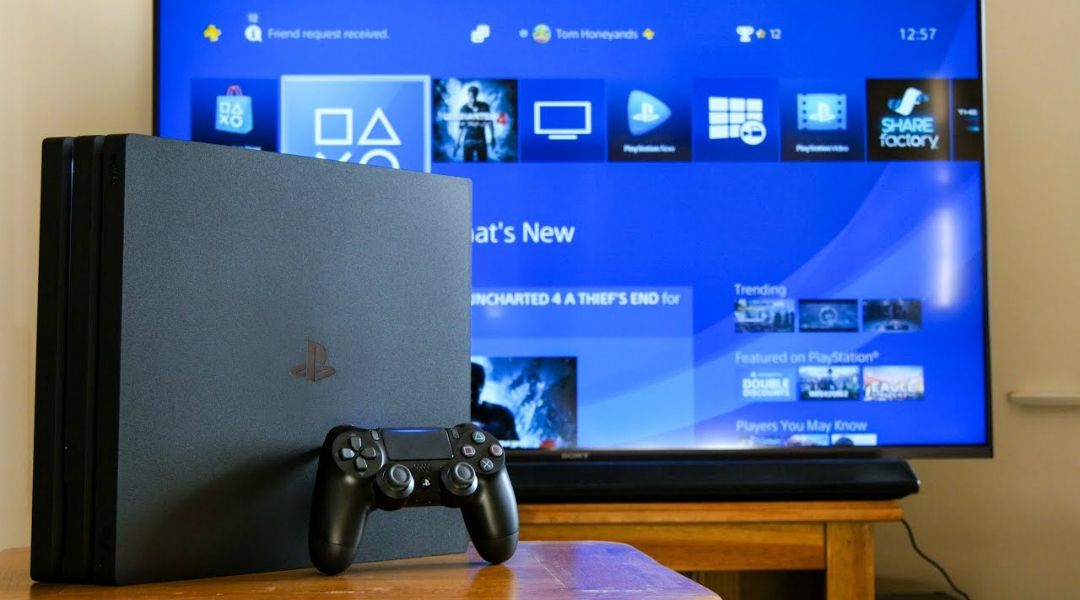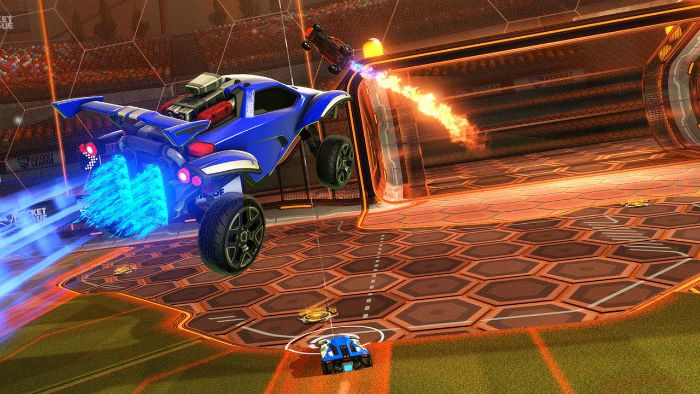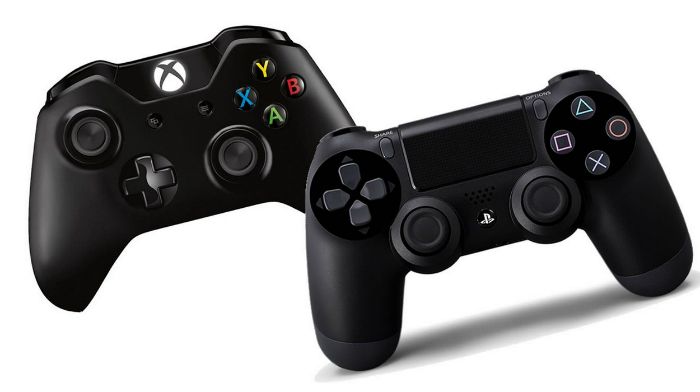The notion of cross-platform play would have seemed absurd to gaming fans even half a decade ago, when people still earnestly believed that the famed "console wars" of the early-to-mid-2000s would continue for the foreseeable future. Here was a concept that seemed to be detrimental to every company involved – what was the point, people argued, of developing your own separate branding and games library if you were going to make it easier for groups of friends to choose different consoles?
As it turns out, however, that idea seemed absurd in part because there was parity between Nintendo, Microsoft, and Sony. Before the Wii U, Nintendo looked every bit like the company that could find one more innovation to push them past their competitors, while Microsoft seemed poised to usurp Sony in console power and exclusive, fiscal year-defining titles. For cross-play to seriously become a consideration for the industry, two things needed to happen.
First, two of the big three needed to stumble. That happened when Nintendo released the Wii U to the innate sadness and disappointment of its fans, and Microsoft didn't do much better – the Xbox One was advertised as having an "always online" functionality that was met with huge backlash, negatively impacting its launch and tarnishing the console's reputation for years.
Second, and perhaps most importantly, the third company needed to capitalize. Sony's sales success with the PS4 by now is no secret, but the company's deft manuevering into a position of industry dominance took a major shake-up to its infrastructure, with more attention being paid to first-party and third-party exclusives. Sony managed to cultivate the idea that its PS4 was the premier choice in gaming, and it was rewarded with nearly triple the install numbers of the Xbox One in 2017, even after the latter had begun something of a resurgence.
That environment brings us to now, when Microsoft has made it publicly known that it is willing to explore cross-play functionality with any developer or company that happens to be industry. Given that Microsoft's Xbox One already has consistent cross-platform support with PC titles, it isn't too much of a logical leap to understand that its invitation has been extended to Nintendo and Sony specifically. While the prospect is an intriguing one for Nintendo, however, it can be difficult to understand why Sony would ever want to, or need to, pursue cross-platform play when it already has such a dominant stranglehold of the video game market.
To a point, that initial reaction is likely correct – Sony would benefit very little from cross-platform play being supported between the PS4 and Xbox One. However, that doesn't change the fact that Sony's archaic policy on cross-platform play needs to be addressed and revised, and that the company needs to support some of that functionality sooner rather than later. The trick, of course, is to do it in such a way that doesn't impact its market share. Games like Rocket League will continue to get made, and the sheer joy players feel competing with their friends is something Sony should enable, not restrict.
That's why Sony should move in on cross-play, just not with the company that wants them to the most. It's not hard to imagine that if Sony made the offer to support PC and Nintendo console cross-play, its dominance would actually grow. That's because the PS4 and Xbox One occupy the same space in the industry, while PC and Switch have their own, more specific communities that don't directly compete with the PS4 and Xbox One approach to console development.
While PC will always appeal to the most dedicated gamers thanks to raw power and customization, PS4 and Xbox One are locked in terms of the specs they provide - they're powerful, but they're worse than PC, and they can't be upgraded outside of memory or new versions being released later. The Nintendo Switch never tries to compete on a specs level, instead choosing to focus on innovation and convenience that neither of the other three can match. In terms of consumers, PC and Switch users likely chose their platform because of the unique opportunities they presented rather than exclusives.
That isn't the case for PS4 and Xbox One, which have similar specs and a similarly broad userbase. For those consoles, exclusives and loyalty are the most important. Bridging a gap between the two of them when Sony has created a much bigger install base seems foolish for the PS4 manufacturer, even when events like the brief Fortnite cross-platform PS4 and Xbox One feature get people talking.
People talking has been something of an issue for Sony of late as well, with Xbox boss Phil Spencer frequently insinuating that it is Sony's fault its players can't play games with Xbox One users. Microsoft, well out of the running for the lion's share of this console generation's profits, can suggest this with no pressure – meanwhile, Sony is forced to respond to players who might suddenly agree, hurting its perception in the eyes of consumers. At this point, each time Sony reiterates its stance on cross-platform play, there's likely more than a few eyerolls from PS4 players.
Sony partnering with just Nintendo and PC developers on cross-play would be the kind of power move we don't see very often in the industry anymore, but it's exactly what the company needs as its userbase grows more anxious over a lack of cross-platform features. It would make PS4 owners happy, but wouldn't eat away at the potential for Sony to tighten its grip on the console market. With the current generation of consoles closer to the end of their life cycles than the beginning, and with the Nintendo Switch poised to make a serious run at portability and convenience, keeping current Sony consumers satisfied with their service while maintaining distance between the Xbox One and its similar business model seems like it should be a priority.
Of course, Sony could just sit back and continue to force players to choose between its PS4 services and other options. With each platform looking like a serious choice, however, that kind of approach might not work any longer, and we could swiftly be reaching a point where Sony will be forced into some difficult choices itself instead.



